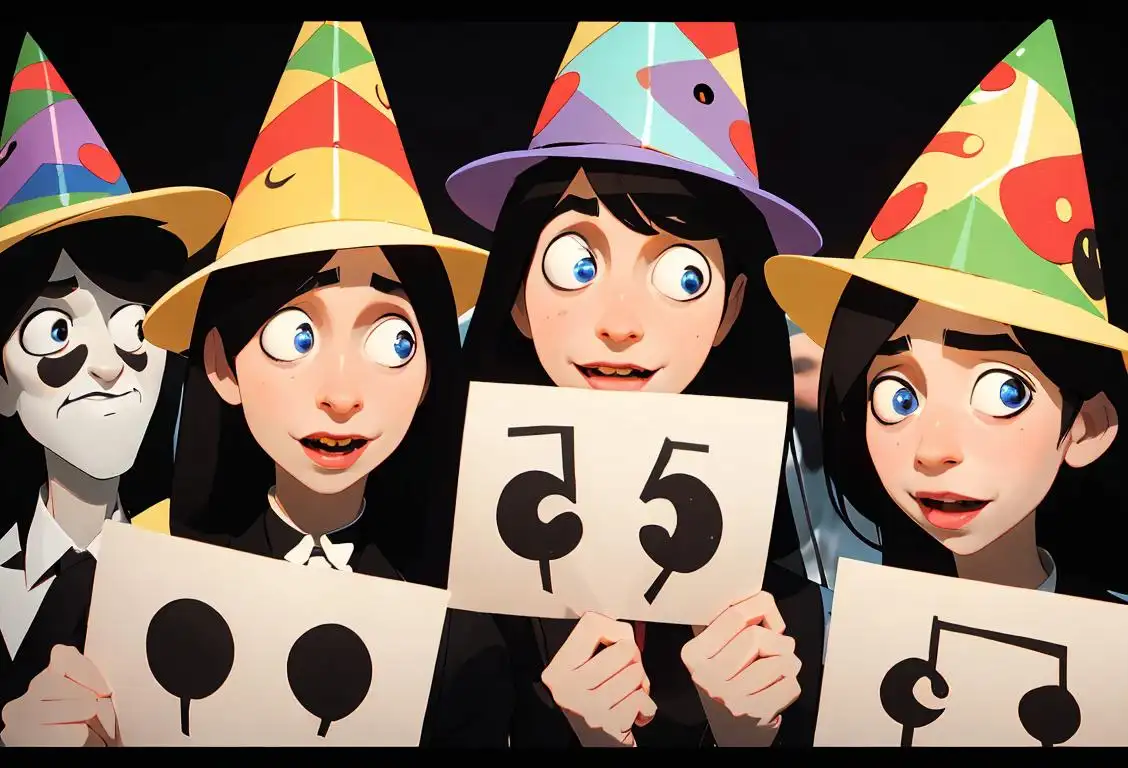National Dissertation Day

Welcome to National Dissertation Day, where we celebrate the pinnacle of academic achievement and the countless hours spent hunched over a computer, fueled by caffeine and determination. Grab your notebooks and highlighters, because we're about to dive into the wonderful world of dissertations!
When is Dissertation Day?
It's national dissertation day on the 26th April.
The Birth of National Dissertation Day
On a fateful day in academia, National Dissertation Day was born out of a collective need to appreciate the blood, sweat, and tears that go into crafting a thesis. Be it a groundbreaking study on quantum physics or a deep dive into the cultural impact of unicorn-themed coffee shops, dissertations hold a special place in our intellectual landscape.
A Day to Celebrate Scholarly Pursuits
Every year on April 26th, students, professors, and knowledge enthusiasts come together to honor the dedication and persistence it takes to complete a dissertation. It's a day to acknowledge the late nights, writer's block, and endless revisions that ultimately lead to a brilliant piece of scholarly work.
Tips for Dissertation Success
If you're currently knee-deep in writing your own magnum opus, fear not! We've got some tips to help you conquer the mountain that is your dissertation:
- Stay organized: Create a detailed outline and keep track of your sources to maintain sanity.
- Take breaks: Your brain needs a breather. Step away from your work every once in a while to maintain mental clarity.
- Find a support system: Surround yourself with fellow dissertation warriors who can offer advice and encouragement when you need it most.
Did You Know?
Did you know that the longest dissertation ever written is over 1,000 pages long? That's longer than most novels! Talk about a true scholarly marathon.
History behind the term 'Dissertation'
1651
The Birth of a Term
The term 'dissertation' originates from the Latin word 'dissertātiō,' which means 'discussion.' It was first used in English around the year 1651 to refer to a formal, lengthy written treatise on a particular subject. Dissertations were primarily produced by scholars and academics, serving as a means of presenting their research and intellectual arguments.
19th Century
Formalization by Universities
During the 19th century, universities began to adopt the term 'dissertation' as the standard name for an extended piece of academic writing required for the completion of certain degrees. The dissertation became an integral part of doctoral programs and was seen as an opportunity for students to make a significant contribution to their field of study.
20th Century
Expanding Accessibility
In the 20th century, technological advancements such as the printing press, typewriters, and eventually computers made the production and dissemination of dissertations more accessible. This led to a wider range of topics being explored in dissertations and increased their availability for future researchers and scholars.
21st Century
Digital Age Impact
With the advent of the internet and digital publishing, dissertations have experienced a significant transformation in the 21st century. Many universities now require students to submit their dissertations electronically, making them easily accessible across the globe. Online databases and repositories provide a vast collection of dissertations, facilitating research and expanding the reach of scholarly works.
Did you know?
Did you know that the longest dissertation ever written is over 1,000 pages long? That's longer than most novels! Talk about a true scholarly marathon.Tagged
awareness fun educationFirst identified
26th April 2018Most mentioned on
26th April 2018Total mentions
13Other days
School Nurse Day
Mathematics Day
Punctuation Day
Grammar Day
History Day
Student Athlete Day
Bird Day
Education Day
Teacher Appreciation Day
Puzzle Day









